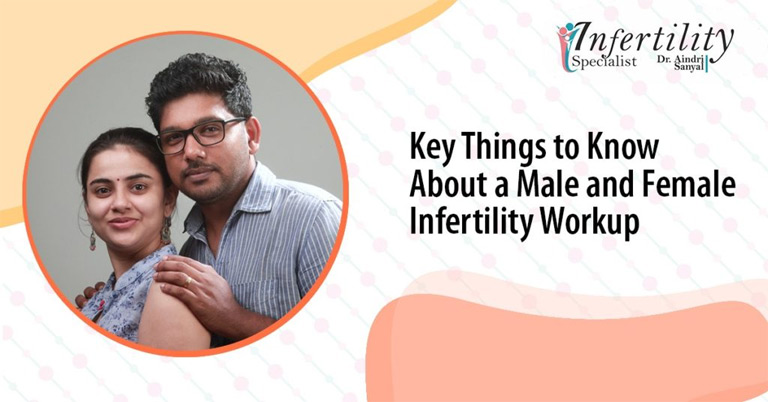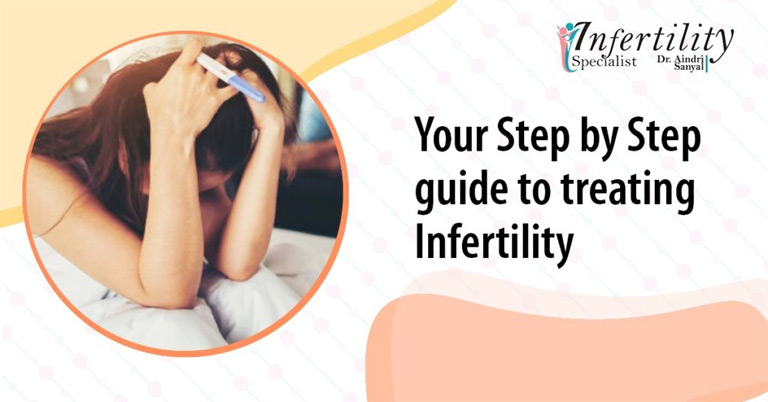
You have been trying hard for a year or two. Still no news of a baby, what’s next?
Many of us assume starting a family will be as easy as they show in traditional movies. But for an estimated eight percent of Indian couples, the pathway to pregnancy is slightly more challenging. After a year of unprotected sexual intercourse, that is how many couples find out that their dream of having a baby is still just a dream.
Joint Venture – Male and Female Infertility
In most cases, the first stop is at the family doctor’s chamber. He/she should be able to carry out the initial workup. Once done, he/she will refer you to a specialist if they think help is required. Fertility specialists emphasize that in an ideal scenario, a couple must be investigated together. But why?
This is because research suggests that about 30% of couples experiencing difficulty in conceiving are eventually diagnosed with “unexplained” infertility.
David Mortimer, Expert, diagnostic andrology testing and President of Oozoa Biomedical Inc. makes the case in the following way: If he has got a bit of a fertility problem, and she has got a bit too, then together they have got a larger problem.
If both the partners are not adequately investigated, the couple may be pushed into fertility treatment that may not be appropriate, or receive treatment that is bound to fail. So what does the male half of a fertility investigation entail?
Male Infertility Work-up
The most important part does not involve tests, needles, or body fluids, but something some men dislike — discussing intimate issues. A detailed medical and sexual history is the cornerstone of a male fertility workup. A man can expect to be queried about matters such as: whether he has undergone prostate or genital surgery; what his profession is, and whether it involves exposure to hazardous chemicals; whether he has chronic health conditions; and/or whether he has difficulty in achieving an erection.
What’s the point of these probing personal questions? To begin with, it can be possible to modify some factors impairing fertility — let’s say by quitting smoking, losing weight, or switching from a prescription drug to an alternative —your physician can be capable of helping. Your fertility specialist will be looking for clues to ask for further testing and treatment. For instance, in some men with diabetes, the muscle that is responsible for keeping semen from detouring the bladder works inadequately — something that can be diagnosed with a urine test.
Sharing certain details of your sex life is essential. For instance, if you have intercourse only during the fertile period, you are sabotaging the chances of achieving parenthood. Remember that saving up does not enhance the chances of conceiving. The sperm count may increase — but motility decreases. Two to three ejaculations every week are recommended as this practice can produce the best-quality sperm.
Physical
Stage two of the male workup is a physical exam of the genitals and prostate to detect abnormalities that may be affecting sperm production. A common problem, often, is a varicocele. In many cases, a varicocele, a varicose vein in the testicle impedes normal circulation, preventing blood in that area from cooling. As even a slight rise in temperature can kill or cripple sperm, a varicocele stands the chance of impairing fertility.
Blood tests
If a couple has failed to conceive after a year or more of trying, some specialists recommend taking blood tests to screen for conditions that affect fertility. These include disorders of pituitary glands and thyroid.
Semen analysis
Do not dismiss this as a simple sperm count. While it does involve measuring the fluid volume and counting sperm, but it should also include a check for infections (a remedied cause of infertility), and an estimate of how many of the tadpole-like cells are the correct size and shape (which is linked to their ability to fertilize an egg) and strong swimmers.
This initial screening should be performed at least twice. There is variability in the sperm count from week to week and month to month, so two sperm tests are conducted a few weeks apart. If the results of the two are different, we are caught in a tiebreaker.
We, as fertility specialists, also recommend checking the presence of antibodies that signal if a man’s immune system has been attacking his sperm. This is a test some labs do not run routinely. Although not so common, this problem is the cause behind fertility treatments failing — something you must know before proceeding.
Since performing analyses require expertise, choosing the right lab is critical. A recent study in which semen samples had been split and sent to different laboratories: the sperm counts differed a hundred-fold!
A man needs to know that they are going to labs that specialize in examining sperm. True, when a doctor recommends taking a test, typically she will suggest where to get it done from —but not all fertility specialists recognize the importance of choosing the right lab, and those who don’t always have time for necessary homework. This also means that it is worth checking yourself, before making a choice.
Female Infertility Workup
Infertility tests for the female partner focuses on structural abnormalities, ovulatory function, ovarian reserve, and ovulatory function. A thorough physical examination, including pelvic, breast, and thyroid examination, needs to be performed with targeted focus on the vital signs.
Some standardized tests that the female must go through during a fertility workup process include:
Three-day bloodwork
This involves drawing blood on the third day of the female partner’s menstrual cycle to evaluate her hormone levels. The blood work checks for normal secretion of oestrogen (E2), the main female reproductive hormone. The blood profile also determines the level of FSH or follicle-stimulating hormone released from the brain. FSH stimulates the ovary to mature an egg.
The Anti-Müllerian hormone (AMH), one of the key predictors of a woman’s egg supply, is also monitored through this blood work. The luteinizing hormone (LH) that normally releases a mature follicle can also be measured.
Transvaginal Ultrasound
An endovaginal or transvaginal ultrasound is a type of pelvic ultrasound used to examine female reproductive organs, including the vagina, cervix, uterus, ovaries, and fallopian tubes. This examines if the female partner’s uterus is normal and monitors the antral follicle count. The latter represents eggs available for a possible pregnancy during that month.
HSG Test
A hysterosalpingogram test uses a special dye and x-ray beams to check for certain growths, like fibroids, polyps, or scar tissues that may be obstructing a woman’s fallopian tubes and preventing a fertilized egg to reach the uterus for implantation.
Saline-Infused Sonography (SIS) or Sonohysterogram (SHG) or Saline-Infused Sonography (SIS)
SHG/SIS is a test that allows further evaluation of a woman’s uterine lining and structure while also looking for blockages in the fallopian tubes.
How to find a suitable lab?
An integrated and advanced fertility service clinic or an urologist who specializes in fertility can refer you to an appropriate facility. Once you have chosen a lab, follow the instructions after collecting the specimen. Men are advised to stop ejaculating for a set period between 48 and 72 hours, before he deposits the semen sample in a container. Where you do this depends on the lab’s policy. The specimen must be delivered to the lab within an hour.



